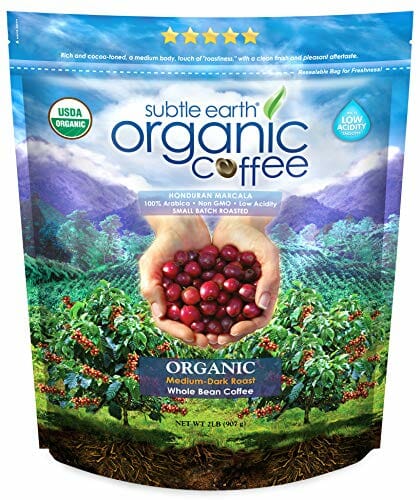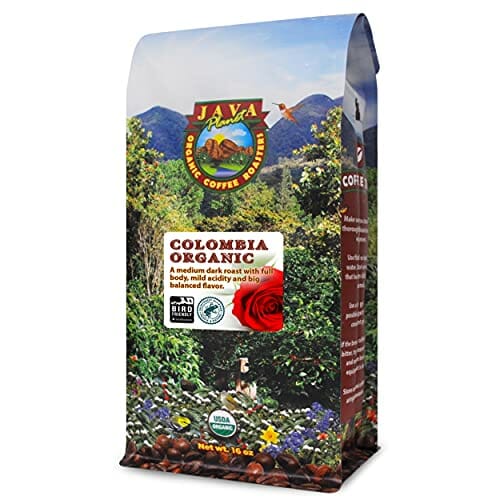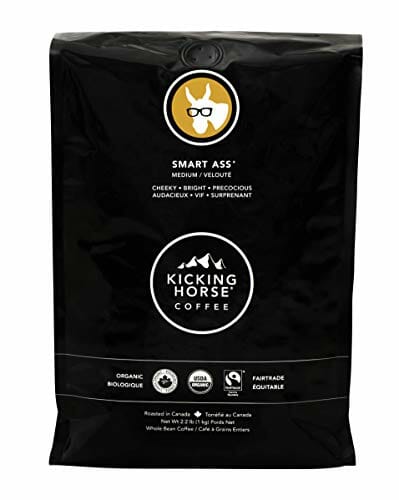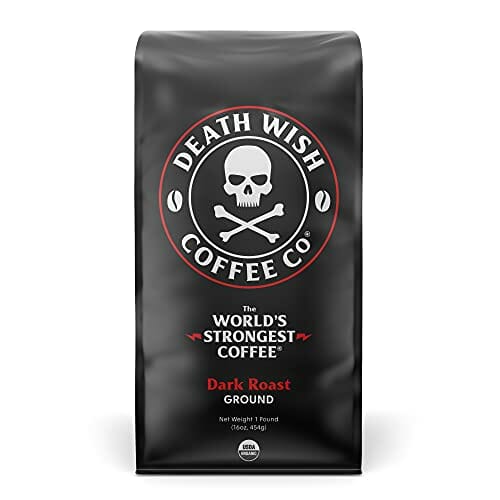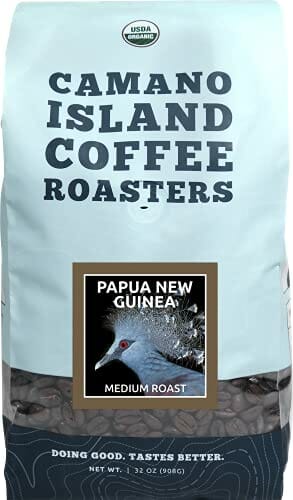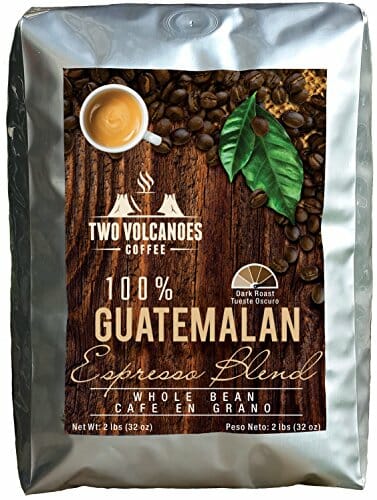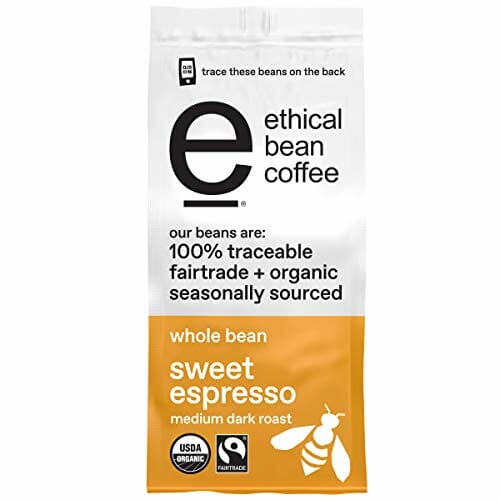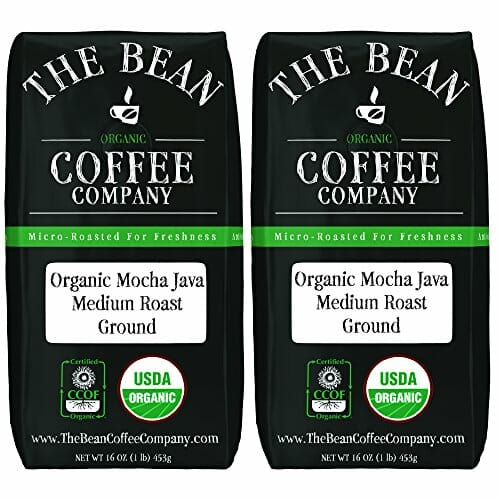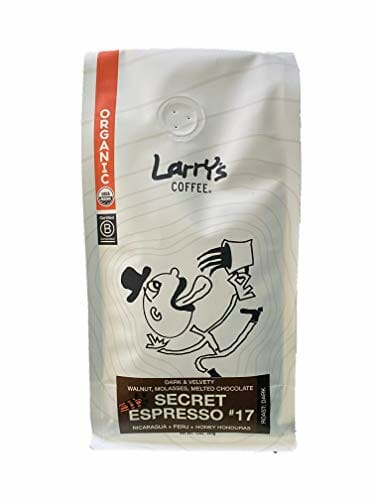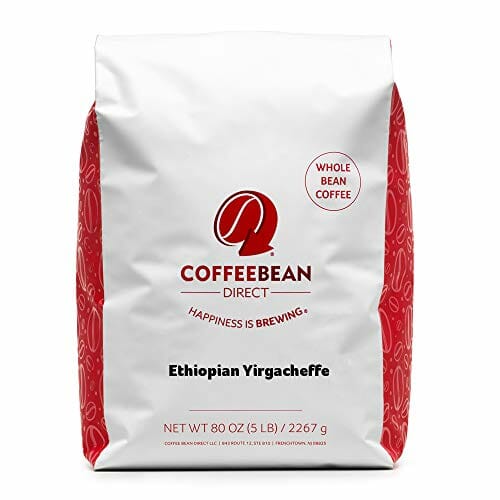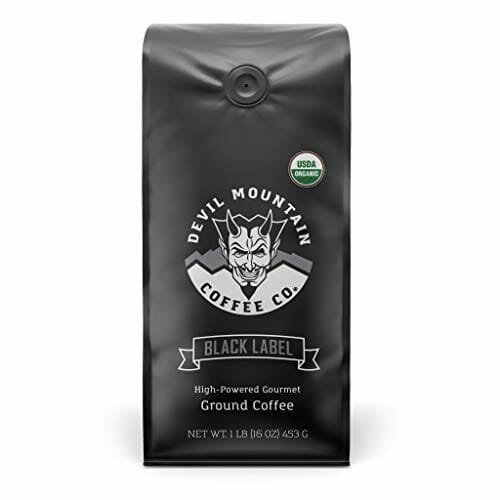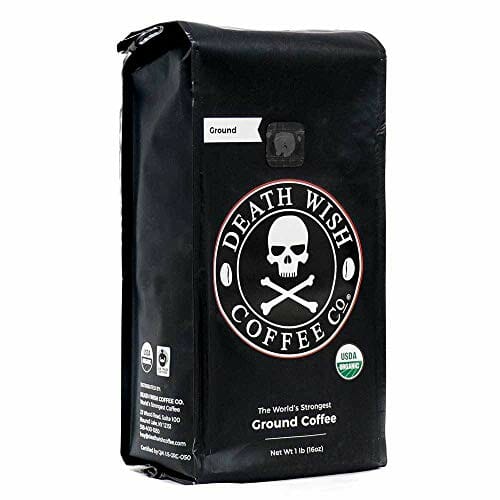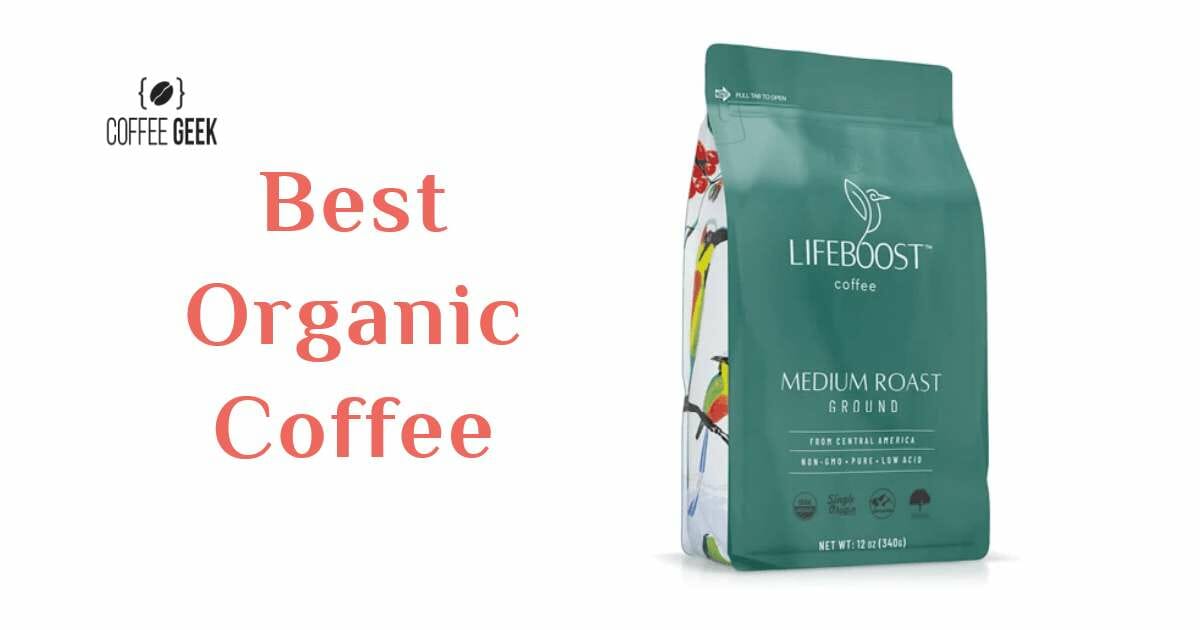
Do you care where your coffee comes from, if pesticides and herbicides were used when it grew, who picked it, how it was processed or packed?
If you do, chances are you are buying organic certified coffee. You are not alone. People like their cup of lava to be organic.
According to one research, the global organic coffee market size was valued at $6.8 billion in 2018, and is expected to reach $12.6 billion by 2026! It is a big market.
I hope this buying guide will help you orient on choosing the best organic coffee available.
- Best Organic Coffee- Comparison of all Reviewed Products
- History of Organic Coffee
- What is the difference between organic coffee and regular coffee?
- Is Organic Coffee Really Better For You?
- Is Organic Coffee Healthy?
- Is Starbucks Coffee Organic?
- Where to Buy Organic Coffee?
- Things you should know when choosing organic brands
- Types of organic coffee
- What is the best organic coffee?
- Best high-caffeine organic coffee beans
- To Summarize it
Best Organic Coffee– Comparison of all Reviewed Products
| Coffee | Product | Features | Price |
|---|---|---|---|
Editor's Choice 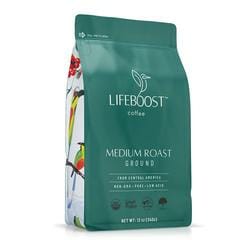 |
| CHECK PRICE | |
 |
| CHECK PRICE | |
 |
| CHECK PRICE | |
 |
| CHECK PRICE | |
 |
| CHECK PRICE | |
 |
| CHECK PRICE | |
 |
| CHECK PRICE | |
 |
| CHECK PRICE | |
 |
| CHECK PRICE | |
 |
| CHECK PRICE | |
 |
| CHECK PRICE | |
 |
| CHECK PRICE | |
 |
| CHECK PRICE |
History of Organic Coffee
Certifiers and farmer groups began the organic certification process around 1967. USDA formed ground rules (for example, that the product should be traceable from the farmer to the retailer), annual inspections, and fees.
Currently, more than 40 countries supply organic coffee beans for organic coffee markets, with Peru being the biggest producer of organic coffee.
Why? Farmers on small coffee farms do not have access to chemicals, and the country exports majority of production.
What is the difference between organic coffee and regular coffee?
Impact on society
According to the mentioned report, more than 25 million farmers are involved around the world to produce coffee in more than 50 different countries.
And 70% of them are family or small-scale farmers living beyond the poverty line.
The organic coffee trade prevents forced and child labor, increases the incomes and food security of farmers, secures better working conditions (no harmful chemicals), and tries to find the balance between maximizing profits and social responsibility.
Bottom line: people should not suffer so you can enjoy your cup of coffee from the other side of the world.
Health benefits
Cheap, normally grown, non-organic coffee aka regular coffee is treated with a lot of chemicals.
Organic coffee is not, plus it is rich in minerals, vitamins, and antioxidants that were preserved thanks to avoiding chemicals.
If you want the creme de la creme coffee, look for specialty-grade coffee.
It is scrupulously tested for toxins, mold, and roasted in a way that reduces dangerous by-products.
Trend
In the last years, all items that we put in our bodies and are eco, certified, responsible, reducing carbon footprint, cruelty-free, non-GMO, packed in an environmentally-friendly way, supporting communities (fair trade), healthy, etc. gained popularity among people.
Also, thanks to the massive increase in marketing activities.
The organic label sells. Big coffee brands such as Nestle S.A., Starbucks Corporation, or Luigi Lavazza S.p.A. jumped on the bandwagon, too, and became some of the biggest producers of organic coffee.
Is Organic Coffee Really Better For You?
It is. Apart from all the good things that are inside coffee beans, it is free of herbicides, fungicides, pesticides, synthetic fertilizers, harmful chemicals. It is also great for farmers and Earth.
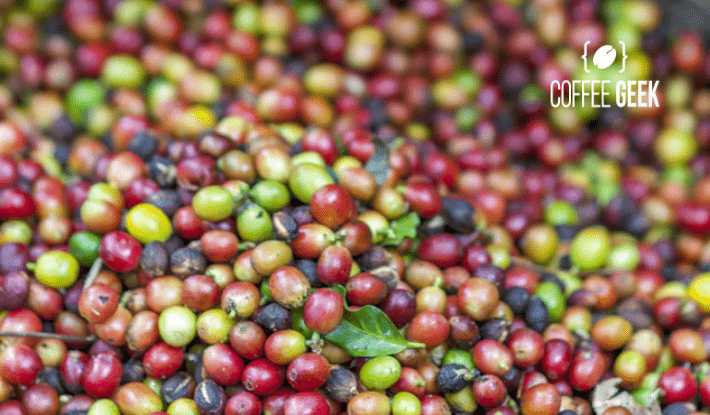
Is Organic Coffee Healthy?
Yes. Antioxidants in organic coffee stabilize harmful free radicals present in the human body and therefore help to prevent different types of cancer, lower your cholesterol, reduce the risk of diabetes, help with weight loss, and prevent neurological diseases.
They also boost immunity and who does not need this after going through 2020? :)
Vitamins and minerals in organic coffee are riboflavin (breaks down carbs), B3 (lowers cholesterol), potassium (reduces blood pressure), or magnesium (fights diabetes, or depression).
Organic coffee is also free of synthetic pesticides and herbicides. That protects the ecosystem, and also human health. Effects of them on the human body include changes to the immune system and a higher risk of cancer.
The main risk associated with organic coffee is certification. There are 2 main issues. A certification costs between $700 and $3000 per year and there is no way that farmers living in poverty can afford that without 3rd party stepping in.
Anyway, many times they can not afford chemicals and grow coffee beans the way their fathers and grandfathers did, so the coffee is basically organic, even if not certified. After all, a certification sticker role from a huge part is, again, marketing.
The other risk is that there are many fakes out there. That is why it is good to know the most popular “sustainable coffee” certifications are:
Organic – The coffee that this article is about. Main consumers of coffee, that is certified organic are the US, Canada, Russia, Japan, and the EU.
USDA Certification – Coffee with this American certification has to be at least 95% organic. Non-organic coffee can not be USDA-certified.
Bird Friendly Coffee – This label attempts to protect the habitat of our flying friends. It was started by the Smithsonian conservation science.
Fair Trade – The goal of fair trade is to support farmers and communities via fair prices and environmental education. Coffee labeled this way is most popular in the US, Canada, EU, Japan, New Zealand, and Australia.
Rainforest Alliance – Gives attention to biodiversity and ecosystem preservation, and sustainable farming. A report from 2009 shows, that Rainforest Alliance Certified™ coffee is consumed in 44 countries.
UTZ Certified – The goal is for all the distribution and supply chain to work sustainably, and for businesses to take responsibility, from worker health and safety to the final product. This coffee is popular in the US, UK, Norway, Sweden, Belgium, Netherlands, Spain, France, and Japan.
There are also: 4C Association, C.A.F.E. (Starbucks), Nestle’s “AAA” guidelines, and certifications…
However, there are organic fake coffees that are actually good for you: they do not include organic coffee beans, but a mix of cocoa and chicory.
Look into brands such as Alfred Fake Coffee or Big Heart Tea Fake Coffee. Maybe a good idea for a gift if you share a home with a tea lover and want to convert him/her to coffee ;)
Is Starbucks Coffee Organic?
No, only about 1-2 percent of Starbucks’ coffee is organic. However, more than 90% is fairtrade.
Where to Buy Organic Coffee?
Things you should know when choosing organic brands
- Know your certifications (USDA being the most popular and visible one)
- Check the source of coffee beans
- Get to know the coffee company via their website, social media, and reviews
- If it looks too good to be true (cheap), it is most probably fake
Types of organic coffee
Any coffee can be marked as single-origin, or blend. What does it mean?
Single-origin – The organic whole bean coffee that is in the bag you are about to buy were sourced from a single producer, crop, or region in one country. Sometimes, the label can be detailed and say for example “single farm coffee”
It is usually of higher quality because you know exactly from your beans are and sometimes the location can be pretty unique, just like with Lifeboost (a small 6-acre coffee farm in the highlands of Nicaragua), the first coffee from my list of best organic coffee brands.
It also naturally supports direct trade and increases transparency, two of the pillars of the organic movement.
Blend – With a blend type of coffee, the organic coffee beans originate in more than one place. What is the plus of blend coffee? Sometimes flavors of different single-origin beans complement each other, resulting in balance, complexity, consistency, and nice taste and aroma. For example, a popular blend is African beans + Indonesian beans.
Shade-grown – These coffee beans are grown in the shade, under a canopy of trees. As opposed to the sun-grown method, this helps with water retention. According to Bloomberg, a quarter of the world’s population will experience severe shortages in the next few years. It also protects biodiversity, native plants, and pollination. This method is especially suitable for Arabica beans (such as all coffees from my list of best organic coffees)
Wet-processed – With this method, the coffee fruit (coffee cherry) is removed after picking, before beans are washed and dried (in the sun or with special machines). Many people believe that this process preserves the special taste of specialty coffee with one origin.
The downside is, that it uses too much water ergo is not that eco-friendly. Two other types of coffee processing are: natural (fruit stays on the bean and they are dried together) and honey/pulped (middle ground between the previous two)
What is the best organic coffee?
1. Lifeboost organic Coffee
Lifeboost Coffee company came to life thanks to a chiropractor. It truly is a healthy coffee and one of the best.
Organic coffee beans come from one location, 5,700 ft altitude in Nicaragua, are hand-picked, fermented for 26 hours, washed with spring water, and let to rest for 30 days.
They are roasted only on order! The company swears by their non-blend ultra-low acid beans, that after brewing result in a rich choco-caramel taste. What I like, too, is that they sponsor Rainforesttrust.org.
Lifeboost offers light, medium, and dark roast, as well as espresso roast, flavored coffee, or decaf. They even make energy drink mixes.
Verdict: Thanks to a special style of growing (high altitude, shade-grown), small amounts available (the coffee farm has only 6 acres), regular Mycotoxin tests, and last-minute roasting, expect to pay more. In my opinion, it is worth it.
Check out my review video below of the LifeBoost range or check out my LifeBoost post here.
2. Cafe Don Pablo Subtle Earth Organic
These telenovela-sounding medium-dark roast Arabica coffee beans come from Honduras.
They are low acid, and the resulting coffee has a sweet, natural aftertaste.
It is suitable for drip, French press, and espresso machines. Don Pablo makes light, and dark roast as well.
The company is AIB Food Safety Certified and Certified by the CCOF for Organic Production.
Their products also have USDA label, but this certification is not mentioned anywhere on their website.
They let the product speak for itself.
Verdict: If you prefer medium-dark roasts to prepare your espresso, go for it and enjoy the nice crema. Great value for money.
3. Java Planet Colombian Organic
This bestseller, gourmet Arabica medium roast single-origin coffee comes from Colombia.
Apart from being certified organic, it is also USDA certified, Rainforest Alliance Certified, and Bird Friendly.
Coffee is full-bodied, with fruit notes, and low in acid. I like that this company is family-owned, and roasting in small batches.
One, two, and five-pound bags are available.
Verdict: Quality assured by many certifications.
4. Kicking Horse Coffee: Smart Ass
Smart Ass by Kicking Horse Coffee is a medium roast with chocolate tones and berry/vanilla body with a hint of honey/caramel is recommended for cold brew, French press, pour-over, or an old-time classic, espresso.
Smart Ass is a shade-grown blend from Africa and the Americas and roasted in Canada.
If you like bright and savory coffee, with low to medium acidity, go for Kicking Horse.
Verdict: Smart Ass is good coffee for lovers of people that prefer complex flavors and mild acidity.
Plus, the Kicking Horse coffee brand offers more blends, from more regions.
5. Death Wish Coffee
These organic beans coming from Peru and India will kill all the boredom and tiredness because of the high caffeine content! They contain 60mg of caffeine per ounce.
While one average 8-oz cup of coffee has about 96 mg of caffeine. According to Consumer Reports, Death Wish has 472mg. Called “The World’s Strongest Coffee“, Death Wish is also popular for being organic fair trade.
To properly enjoy its nutty and full flavor, the company recommends 2.5 tablespoons of coffee to every 6 ounces of water and French Press or Chemex.
Verdict: Safe and delicious to drink in small amounts. Be careful if you have cardiac issues, anxiety problems, problems sleeping, or are sensitive to coffees with high caffeine content.
Read my Death Wish Coffee Review here.
6. Jungle Coffee Gourmet Coffee Beans
Jungle Coffee is a gourmet whole bean dark roast from Costa Rica, with a smooth body, nice aroma, and low acidity is perfect for French press or cold brew.
Or try to brew it the Costa Rican way with “a sock” – called chorreador.
It is USDA certified and thanks to its origin, where organic beans grow in hot temperatures, high elevations, and rich soil, it is worth every penny.
Verdict: Great for lovers of cold brew and people that do not settle for blended coffee products.
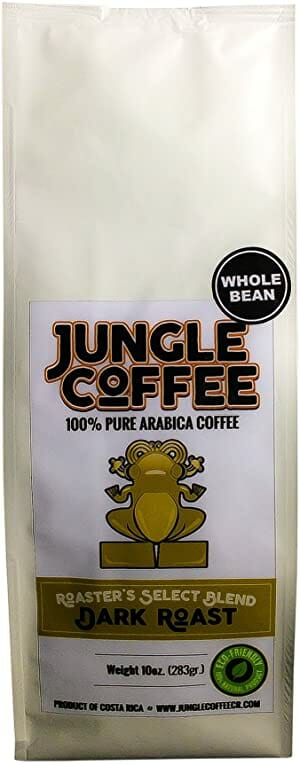
7. Camano Islan Coffee Papua New Guinea
Camano Island is a USDA-certified and fair trade coffee brand. Your taste buds can enjoy fruity and cocoa tones in a brew made from this medium type of roast.
Plus, it goes down smoothly, with no acidity. Camano Island Coffee claims, that it is always bagged and shipped within 48 hours of roasting, which is not as good as roasted to order (Lifeboost and Volcanica) but still good.
Verdict: Thanks to the USDA certification and the fact that they use only the top 2% of organic coffee beans, you can be assured of high quality.
Plus, I love the variety of single-origin coffees they offer, from Central and South America to Indonesia.
8. Two Volcanoes Gourmet Espresso Beans
These single-origin beans from Guatemala are a dark roast, suitable for espresso.
Prepare a gourmet coffee with enhanced fruity and wooden notes, and enjoy it along with a dessert.
It is a dark, non-oily, strong roast, yet smooth, with subtle earth notes. Perfect for pour-over or cold brew.
Verdict: Even if the product description on Amazon has a mixed text, mentioning both blend and single-origin coffee, this one is from Guatemala.
Smells and tastes great, has a kick, but velvety mouthfeel.
If you prefer a sleek taste of medium roast, Two Volcanoes offer it, as well.
9. Ethical Bean Coffee Sweet Espresso
This USDA-certified organic and fair-trade coffee is a sweet, medium-dark roast from… well, hard to say at a first glance.
All Ethical Bean beans are seasonally selected from South and Central America.
Goes well with milk. But even without it, one can enjoy sweet notes, a medium body, and nice crema.
The company states that it is best enjoyed with a ratio: two tablespoons of ground coffee to six ounces of water.
Verdict: Sweet, good coffee that pairs well with milk, and has a reasonable price.
The only minus is that there is no visible mark on the package regarding its origin.
10. The Bean Coffee Company: Mocha Java
First coffee blend in history.
Mocha does not mean it has a mocha taste, simply that it is a mix of Mocha beans from Yemen and Arabica beans from Indonesia.
This medium roast by The Bean Coffee Company with sweet/choco taste, subtle earth notes, and no bitterness is suitable for espresso, drip coffee, or French press.
Verdict: Mocha and Arabica beans complement each other and espresso holds nice crema.
11. Larry’s Coffee: Secret Espresso #17
The name says it all, it is a blend of beans from Guatemala and Nicaragua.
It is shade-grown, USDA-certified organic coffee, medium-roasted with a balanced taste.
Just like the previous two coffees, it is not dark, a bit sweet, but bold and rich, suitable for the French press.
There are hints of spices and gentle acidity.
Verdict: I love that they present their farmers on the website and offer barista classes.
A truly organic, responsible, fair-trade approach.
They also have a variety of choices, even a single-origin coffee, if you prefer it.
12. Coffee Bean Direct Dark Ethiopian Yirgacheffe
Did you know that Yirgacheffe is the birthplace of wet processing of coffee beans (washed, then dried) as opposed to the traditional method of drying beans in the sun?
This artisan light roast has moderate acidity, and nutty, bit sugary notes.
Use it to prepare a delicious cold brew, or with French press, AeroPress, or drip and pour-over method.
Verdict: Smooth body, low to medium acidity, and floral aroma makes this roast perfect for many brew methods, even cold brew since the roast is light but not weak, or boring.
A legend says that an Ethiopian goat herder saw his goats eating cherries which explained why they were so energetic. Raaaaad. With this certified organic coffee, you goat this… even on those lazy Monday mornings.
Best high-caffeine organic coffee beans
Black Label
Black Label by Devil Mountain Coffee is the strongest, USDA-certified organic coffee.
It is a blend, but oh boy, is it a strong one! 12 ounces contain 1555 mg of caffeine.
Just to remind you, the maximum caffeine intake of a healthy person should be 400 mg!
Death Wish Coffee
This previously mentioned dark roast blend of Arabica and Robusta beans is low in acidity, definitely not in caffeine content.
12 oz cup of coffee contains 650 to 728 milligrams!
It is nicknamed the strongest coffee, therefore I included it, but Black Label wins over Death Wish.
To Summarize it
the best organic coffee does not only provide a nice surprise for your taste buds, it provides means to be responsible towards the Earth (it often comes from one, small spot) and communities (fair trade) but also to be healthy.
Part of the reason we prefer Lifeboost.
With organic coffee, you get all of these (and more) from your cup of coffee: energy, vitamins, minerals, and antioxidants.
Plus, organic coffee comes from one or more locations and in many forms: light roast, medium roast, dark roast, even medium-dark, perfect for those that want to go black… but dial it back :)
Did you try one of the organic coffee brands that I mentioned? Or am I missing out on something good? Let me know :


